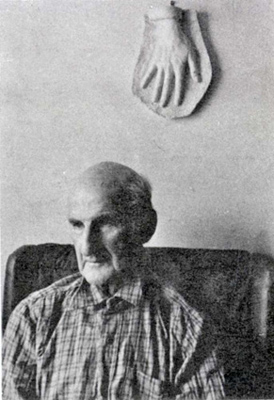
| Next Page |
 |
||
| Thoughts on | ||
| Begin the Beguine | ||
| by Fred Marks | ||
| from a talk given on | ||
| November 10, 1984 | ||
|
The hazards which are being exerted in every direction in the world today to resuscitate or do away with the present order of things have brought man to a state of perplexity and bewilderment. So I take my role of work in Baba's cause not as a teacher or a philosopher but more directly as a witness. I quickly pass on from things as they are to what they might become for those of us who are aspirants, lovers of Baba who have to be in the world without getting caught up in it. |
The sense of my talk today is centered around Baba's favorite song, Begin the Beguine. The history of the origin of the song is simply incidental. In 1955 when the Beguine was first sung in London, the song did not arouse much interest in people, probably because it was enveloped in obscurity.
However, Baba was in England at the time Cole Porter, the composer of the Beguine, pro- duced another song called Spread It Abroad. Leslie Hutchinson, known as Hutch, singer and pianist, took them up with much enthusiasm. Artists all over the world clamored to sing the Beguine, but Hutch had the exclusive rights. He was a much-loved personality and respected the material entrusted to him; he was careful to interpret it in the spirit in which it was created. Cole Porter composed songs of the nature of human love, which seemed to be inspired by the Divine. The Beguine, however, transcends the whole range of human love, and the composer became the visionary of the Divine. It can be assumed that Baba crossed the path of both singer and composer and either one or the other or both were agents for Baba, who stated that the Beguine meant a great deal spiritually.
It was in August 1961 when Baba sent word to England for a search to be made for the original recording of the Beguine. It was the only one of its kind in existence of this particular version—it was almost impossible to come by, like searching for the Holy Grail. Eventually it was found and Mani wrote, "It's the end of our united search. It's the perfect one, and it made our Perfect One happy."
The Beguine is the story of the soul's journey from the Beyond God to the end of illusion, when the Soul knows, "I am God." We all know that in the beginning there was a ripple over the Divine Ocean, and that ripple caused waves, and drops appeared. Those drops, which are in fact ocean, did not know they had forgotten the still, calm ocean, and knew themselves only as drops, and these drops said, "Who am I?" The Beguine describes the splendour of God, who knows everything; He knows how each drop will act. He knows each drop will have many experiences, and will forget Him, even though they are Him. He tells us in the Beguine how at times He cannot bear to recall how these drops suffer, until, He says, one drop begins to look at itself and think, "Who am I?" And then again He clutches His heart and that drop thinks about God. The clouds again appear and once again the drop forgets, and again and again these drops appear to remember God and again and again they forget, as Illusion forces them back into their illusion.
Baba once said He was so fed up with the world that He had a mind to send it all back to
| Next Page |